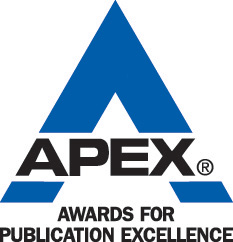 News from the Wire
News from the WireWASHINGTON, D.C.—Dennis Kelleher, Co-founder, President, and CEO, issued the following statement in connection with the banking agencies’ hearing on Thursday on TD Bank’s application to acquire First Horizon to create the 8th largest bank in the U.S., as detailed in this Better Markets’ letter:
“JPMorgan Chase CEO Jamie Dimon was ferociously adamant that all banks, including especially too-big-to-fail (TBTF) banks, must be readily able to be resolved in bankruptcy if they fail. We wholeheartedly agree with that ‘Dimon Rule.’ However, the Federal Reserve and OCC are rubber-stamping the biggest bank merger spree since the devastating 2008 financial crash without requiring the banks to have robust resolution plans. This is creating too many dangerous TBTF banks, which threaten the stability of the financial system, future taxpayer bailouts, and Americans’ jobs, homes, and savings, as was painfully proved in the aftermath of the 2008 collapse of numerous TBTF banks.
“Four of the ten largest banks in the country will have been created in just a little more than three years if the pending merger applications are approved. The pending application of TD Bank to acquire First Horizon (which is the subject of a hearing this Thursday) would make the combined bank the 8th largest in the country. Similarly, U.S. Bancorp’s pending acquisition of MUFG Union Bank would make it the 7th largest bank. The supersizing of these banks comes on top of BB&T’s 2019 merger with SunTrust to become the 9th largest bank (Truist) and PNC’s 2021 acquisition of the U.S. operations of BBVA to become the 10th largest bank.
“Unfortunately, the banking agencies’ merger review process fails to fully assess the catastrophic threat these banks pose to the financial system and economy, as well as to the livelihoods and standard of living of every American. That must change.
“The banking agencies should apply the ‘Dimon Rule’ and require the submission of robust, workable resolution plans for the combined banks before any merger or acquisition is considered, much less approved. That would ensure that banks, no matter how big, complex, leveraged, and interconnected, can fail and go through the bankruptcy process without threatening the financial system and economy with unacceptable collateral consequences. Combined with capital, liquidity and other resiliency measures, this requirement would end the ongoing TBTF threat and take away the Hobson’s choice faced by policymakers and regulators when financial stress and crisis happens: bailout banks with taxpayer money or inflict calamitous harm to the American people.
“The ‘Dimon Rule,’ however, will only work if the resolution planning process itself is materially strengthened and prioritized. It is simply unacceptable that the Federal Reserve and FDIC have indefinitely extended their one-year deadline to review the existing GSIBs’ resolution plans that were submitted more than a year ago in July 2021. Moreover, among other things, the Federal Reserve must make its ‘expectations’ for resolution plans – particularly those for certain capital and liquidity needs – part of legally binding rules. Such ‘expectations’ do little to ensure banks and their subsidiaries are in fact properly positioned to handle periods of extreme stress.
“TD Bank and any other pending and future mega-merger applications must require a submission of a resolution plan that ensures its failure can be handled in the bankruptcy courts like every other company in America, and as required by the most fundamental rules of capitalism. It is past time to end the Hobson’s choice and finally protect the American people from the uniquely dangerous threats posed by TBTF banks.”
Our full letter to the banking agencies detailing these concerns and recommendations can be found here.
The “Dimon Rule” is based on the testimony of JPMorgan Chase CEO Jamie Dimon:
“We have to get rid of anything that looks like too-big-to-fail. We have to allow our big institutions to fail. It is part of the health of the system, and we should not prop them up. We have to allow them to fail. And I would go one step further. You want to be sure that they can fail and not damage the American economy and the American public.
“So a big bank, you want to be in a position where a big bank can be allowed to fail. I would not call it “resolution.” I think that is the wrong name. I think we should call it “bankruptcy.” Personally, I call it “bankruptcy for big dumb banks.”
“I think that when you have bankruptcy, I would have clawbacks. I would fire the management. I would fire the board. I would wipe out the equity and the unsecured [creditors] should only recover whatever they recover like in a normal bankruptcy. . . .
“We are also in favor of one other thing, by the way, which is if the FDIC ever puts money into this bank—but I think the bank should be dismantled after that and the name should be buried in disgrace. So there’s a little Old Testament justice here.”[1]
About Better Markets
Better Markets is a non-profit, non-partisan, and independent organization founded in the wake of the 2008 financial crisis to promote the public interest in the financial markets, support the financial reform of Wall Street and make our financial system work for all Americans again. Better Markets works with allies—including many in finance—to promote pro-market, pro-business and pro-growth policies that help build a stronger, safer financial system that protects and promotes Americans’ jobs, savings, retirements and more. To learn more, visit www.bettermarkets.org.
The Green Sheet Inc. is now a proud affiliate of Bankcard Life, a premier community that provides industry-leading training and resources for payment professionals. Click here for more information: bankcardlife.com?orid=33533&opid=1 .
Source: Company press release. 

SRM acquires Accourt Payments Specialists
Alkami launches SDK wizard 'Merlin'
PSCU/Co-op, Gulf Coast Educators FCU team up
NVIDIA honors WPP for innovation in EMEA
Fime to support UAE’s domestic card scheme set up
Anna Porra joins Paymentology as CRO
Lemon raises £500K to help SMBs save on SaaS funding
BHMI releases 'Configurable Summary'


